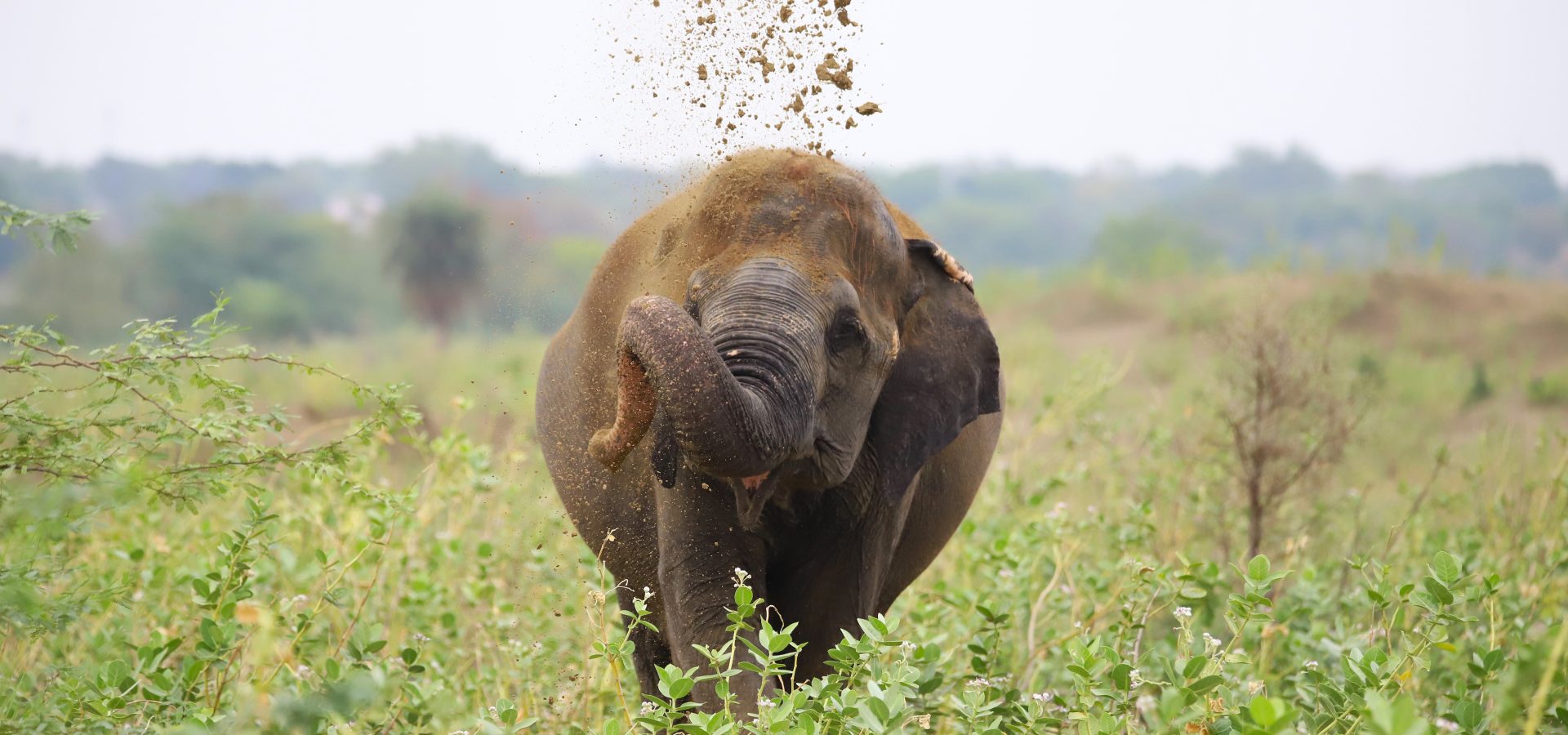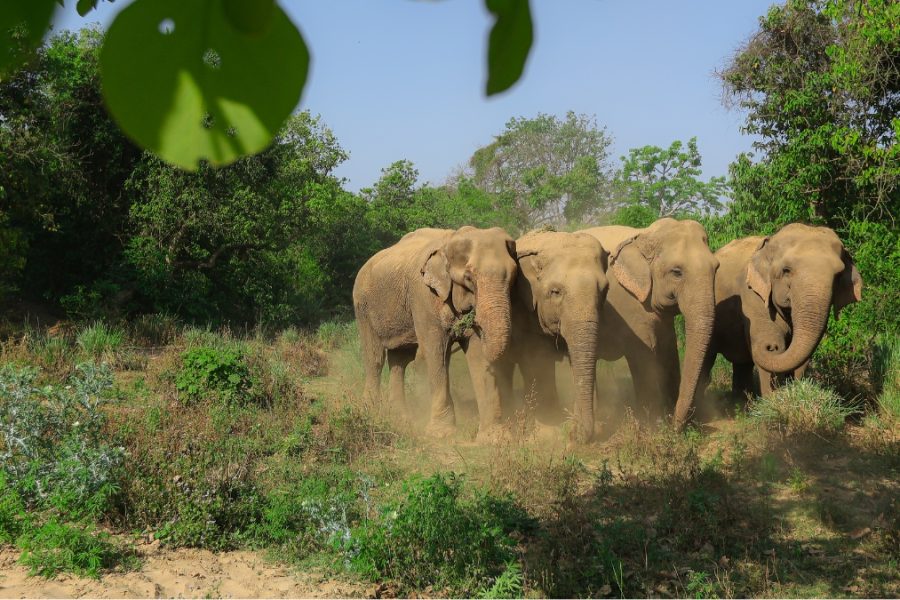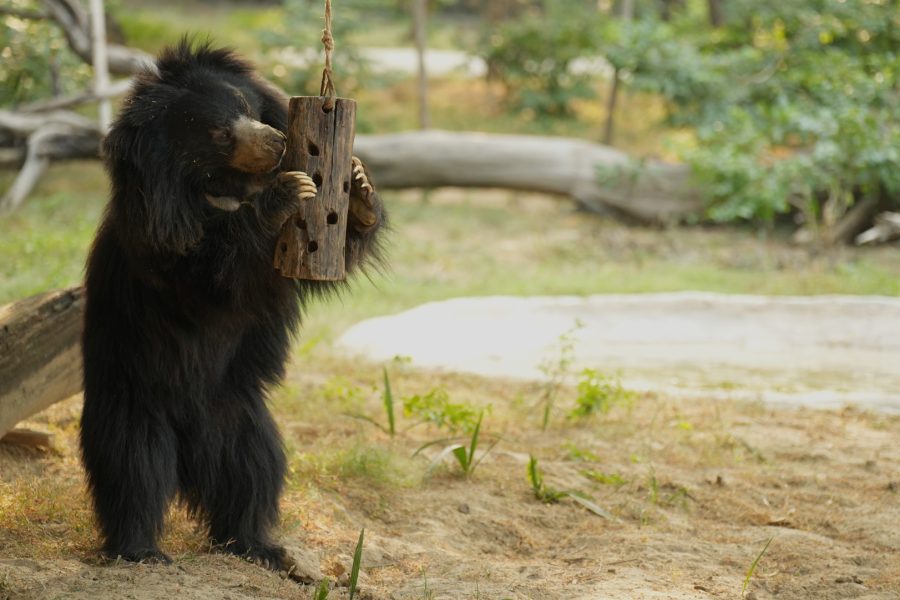Many of us begin our day with a list of tasks to do. What we often tend to miss adding to the list is self-care. Taking care of oneself is essential to safeguard our physical and mental well-being. By looking after ourselves, we can manage stress better, lower the risk of any illness and also boost our energy levels.
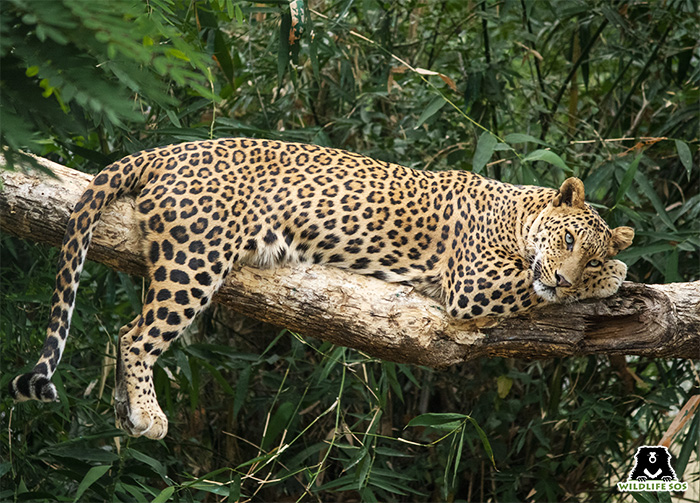
Here are some of the self-care tips that animals in the care of Wildlife SOS can help us with!
Exercise Regularly
Leopards are incredibly agile animals. This remarkable characteristic plays a significant role in their ability to survive in the wild. They can swiftly chase their prey while reaching impressive speeds of up to 58 kilometres per hour! Being flexible, they are able to navigate through narrow spaces, leap long distances, and execute quick turns while hunting. Besides this, leopards are well-known for their ability to scale tall trees with ease.
Their impressive athletic abilities remind us how important physical exercise is to maintain our body’s well-being. By exercising regularly, we remain physically and mentally active and also strengthen our bodies. Let’s take a cue from these majestic felines and incorporate this healthy self-care practice into our routine!
Consume a Balanced Diet
Sloth bears are myrmecophagous, and therefore insects like ants and termites happen to be their most sought-after meals. Most of their remaining diet is made up of fruits and seeds. Their affection for honey, which they usually find in beehives, has also earned them the name of “honey bears”! This array of food fulfils their requirements of vitamins, minerals, and antioxidants.
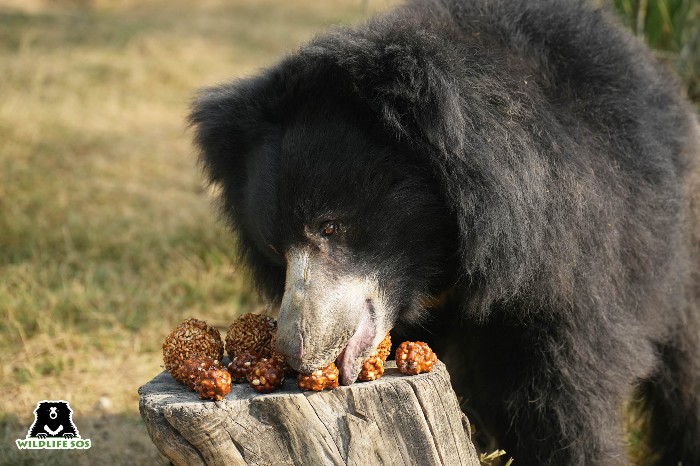
Like sloth bears, we too can follow a balanced and nutritious diet for our self-care. By prioritising those food items that our body requires in our meals, we are also taking good care of our health. So ‘bear’ in mind mindful eating, while also savouring all the flavours!
Hydrate Yourself
An elephant’s trunk is a wonderful tool. It not only helps the elephant to grasp, breathe and feed, but also to consume ‘trunk’ loads of water! With the ability to hold up to 8.5 litres of water in their trunk, elephants sure know how to use all of it in the best way possible! After drinking it from their trunk, they spray water playfully onto their backs to keep themselves cool.
Just like elephants, our self-care routine must include staying hydrated by drinking plenty of water throughout the day. A refreshing bath on hot days helps us to relax and rejuvenate. An elephant’s long trunk, therefore, carries a wise message for us: Keep calm and rehydrate!
Catch a Break and Get Proper Sleep
Each winter season, Himalayan brown bears and Asiatic black bears hibernate, during which time they don’t eat and remain inactive. The functioning of their body organs slows down in order to conserve energy, and they drift into a deep slumber.
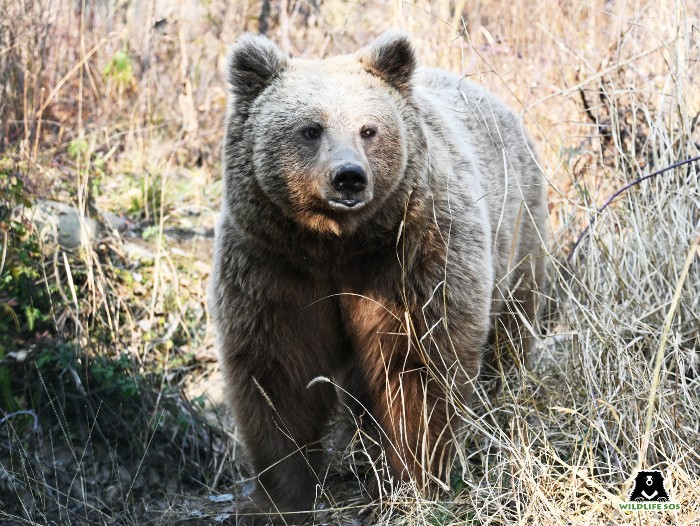
This is seasonal for bears, but their hibernation is worth thinking about. While it is important for us to remain physically active, it is imperative that we also give our mind and body adequate rest. Sufficient sleep at night guarantees a fresh morning and becomes one more way to ensure self-care. Taking some time off replenishes our energy levels and also strengthens our immune system.
Embrace Natural Skin Care
Elephants find relief by wallowing in mud or water, because these help them to protect their skin from sunburn and insect bites. Leopards too spend ample time taking care of themselves. They groom themselves to keep their fur clean. A significant part of their me-time is also spent basking under the sun for hours.
The animals have already shown us ways to care for ourselves. Human beings have sensitive skin that the sun’s ultraviolet rays can easily damage, and a natural skincare routine is often advised as a perfect way to protect it. Well-groomed and kempt hair indicates self-care too! These activities help to revitalise both our mind and body.
Socialise with your Loved Ones
Elephants are as social as an animal could be. Generally known to live in matriarchal herds of nearly eight to ten female elephants, they display complex behaviours that reflect empathy, problem-solving skills, and communication. From using an array of sounds to express their emotions to caressing one another, they have garnered numerous cues to communicate.
Socialising with loved ones is indeed an excellent self-care practice. It provides emotional support, helps to relax and unwind, and nurtures relationships. As a self-care practice, we must spend time with friends and family.
Animals around us lead us by example. In the bustling lives that we’re all leading, we must involve these simple, yet important self-care practices in our daily routine!
Subscribe to our newsletter to receive more such interesting information in your inbox.

